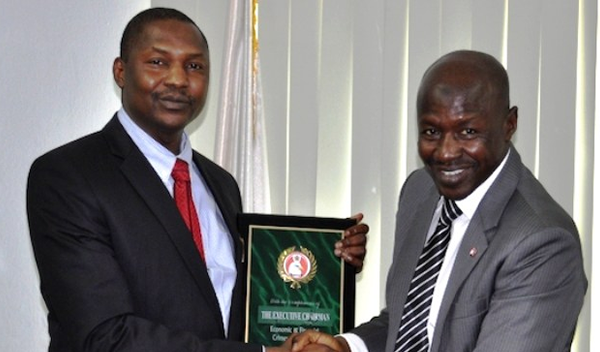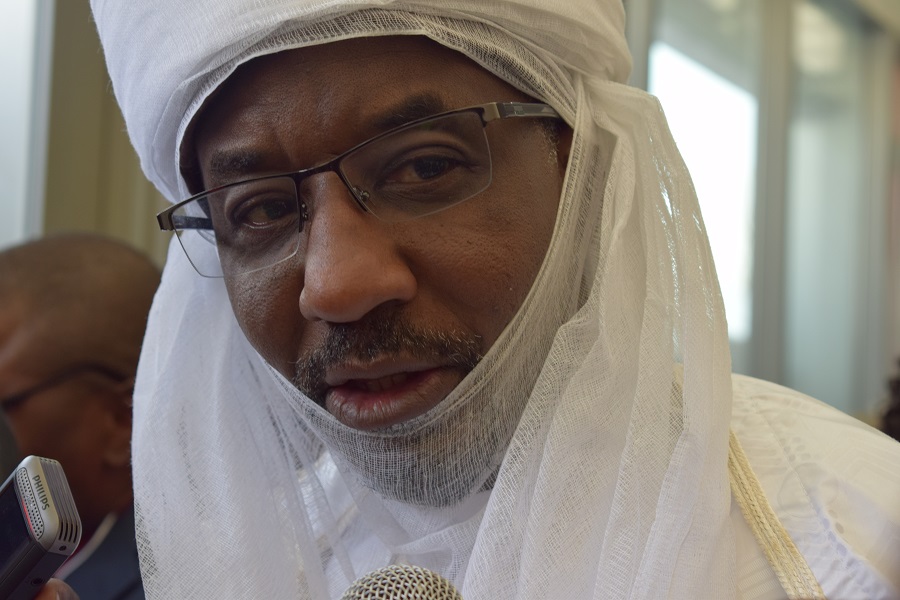Abubakar Malami, the attorney-general of the federation, almost bungled Nigeria’s bid to upturn the $10 billion arbitration fine awarded to Process and Industrial Developments (P&ID).
Ross Cranston, a judge of the Business and Property Courts of England and Wales, on Thursday granted Nigeria’s application for an extension of time and relief from sanctions.
By this ruling, Nigeria is now allowed to present evidence of fraud in getting the arbitration tribunal to set aside the “$6.6 billion plus 7 percent” award issued against Nigeria on January 31, 2017.
Cranston relied heavily on the role played by Ibrahim Magu, the suspended acting chairman of the Economic and Financial Crimes Commission (EFCC) whose investigation questioned the integrity of the gas supply and processing agreement (GSPA) Nigeria signed with P&ID in 2010.
Advertisement
Malami had engaged Magu in a face-off leading to the suspension of the EFCC boss.
One of the reasons Malami gave in his petition to President Muhammadu Buhari was that Magu did not probe the P&ID deal diligently.
The British judge, quoting reports by TheCable, Nigeria’s independent online newspaper, noted that Malami eventually clarified his statement on the EFCC role in the fraud investigation.
Advertisement
Cranston said: “After the hearing, I received written submissions relating to the role of acting chairman of EFCC, Mr Ibrahim Magu. On 5 June 2020 the Attorney General, Mr Malami, had sent a letter to President Buhari headed ‘Flagrant abuse of public office and other infractions committed by Mr Ibrahim Magu, acting chairman of the Economic and Financial Crimes Commission’.
“In the course of the letter the Attorney General stated that as regards the investigation of P&ID, although he had passed on the President’s direction in June 2018, the EFCC ‘did not accord this presidential directive with any serious attention until a year after around July/August when the scale had already tilted dangerously against Nigeria’. In view of the delay, the Attorney General continued, he had involved the police. That had prompted Mr Magu to prosecute charges against P&ID, but without recourse to the wider team.
“Mr Magu was detained on 6 July 2020 and a panel is investigating matters. On 31 July 2020, after the hearing before me, a Nigerian news outlet, The Cable, published what purported to be a copy of the Attorney General’s letter of 5 June 2020 and the reply of Mr Magu. In Mr Magu’s reply, he says that the EFCC investigation was conducted expeditiously in 2018-2019 and that a staggering and unprecedented volume of work was done in less than a year.
“After The Cable report, on 4 August 2020, the Attorney General wrote again to the President under the same heading. He sought to clarify that his complaint was against Mr Magu and his lack of support within the EFCC for the P&ID investigation. The EFCC had begun the investigation, he said, but it had taken a lot of coercion from his office to have the investigation progress. Under Mr Magu, said the letter, the EFCC did not share information with the Attorney General’s office or the police.
Advertisement
“In a further statement for the court, Mr Malami states that he has never seen what is reported as Mr Magu’s letter and his understanding is that the President has never received it. He states that despite his criticisms of Mr Magu’s personal handling of the EFCC investigations into P&ID, the investigation itself made excellent progress.”
Magu is currently facing a presidential panel set up to probe his stewardship at the EFCC, where he was made acting chairman in November 2015.
Add a comment







